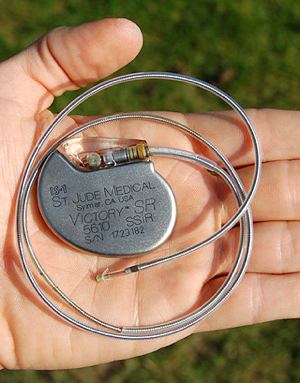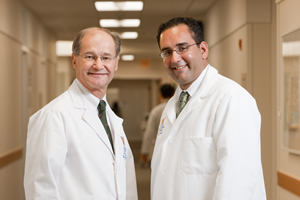 Millions worldwide die each year because they can’t afford a pacemaker. Meanwhile, heart patients in the United States say they’d be willing to donate theirs after death to someone in need.
Millions worldwide die each year because they can’t afford a pacemaker. Meanwhile, heart patients in the United States say they’d be willing to donate theirs after death to someone in need.
In this week’s issue of Circulation, experts at the University of Michigan Cardiovascular Center described the legality and logistics of collecting pacemakers, for reuse across the globe, and unveiled a new program to do just that.
They assert that humanitarian efforts so far have shown reuse of pacemakers to be safe and effective with little risk of infection. In fact, patients live as long with a recycled pacemaker as those who get new ones, authors say.
Leading the way is Project My Heart—Your Heart, a collaboration between citizens, physicians and funeral directors in Michigan, and a Detroit non-profit that specializes in the delivery of used medical equipment.
“Establishing a validated pacemaker reutilization program could transform a currently wasted resource into an opportunity for a new life for many citizens in the world,” says study senior author Kim A. Eagle, M.D., cardiologist and a director of the UM Cardiovascular Center.
Easing a global epidemic
Each year 1 million to 2 million people worldwide die due to lack of access to pacemakers. But 84 percent of patients surveyed said they would donate their pacemaker for reuse.
Pacemakers are implanted to correct a slow heartbeat. A slow heart rate can be caused by heart attacks, conductive diseases or old age and lead to fainting and fatigue.
Some foreign manufacturers have reduced the cost of pacemakers to as little as $800, a price that still makes it out of reach in poor nations.
“Despite the substantial cost reduction, a new pacemaker is often more than the annual income of the average worker in underdeveloped nations,” Eagle says.
In recent decades, industrialized nations have seen a drop in deaths from heart attacks and strokes, but those in low- and middle-income nations continue to experience an epidemic of cardiovascular disease, the world’s leading cause of death.
A model program
Used pacemakers are a wasted resource, removed before burial or cremation and thrown away or stored at funeral homes with no apparent use. In a UM survey of Michigan funeral home directors 89 percent said they were willing to donate devices to charitable organizations if given the opportunity.
According to study authors, after families consent, donated devices will be sent by the funeral home in a free postage-paid envelope to the UM for assessment of battery longevity.
If the device has a battery life greater than 70 percent, it will be sterilized and old patient information will be erased, with the ultimate goal of allocating devices to institutions throughout the world.
Information about donating pacemakers and requesting shipping envelopes is available online at www.myheartyourheart.org. However, no devices will be shipped overseas, nor implanted into living persons, without meeting state and national regulations.
(Source: http://med.umich.edu)



















